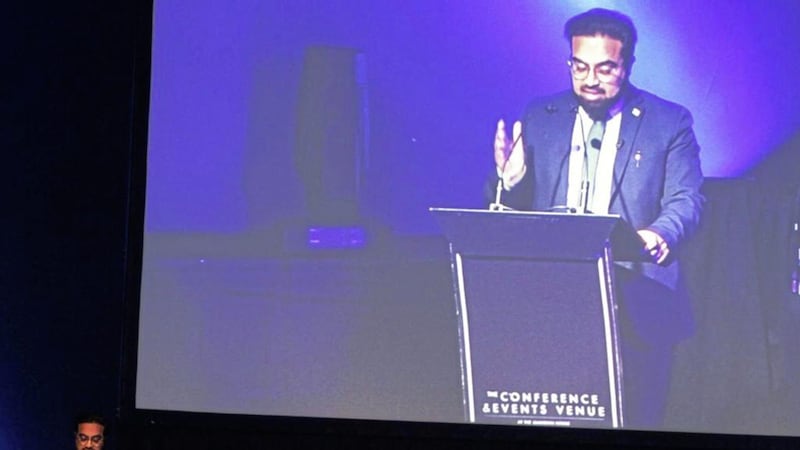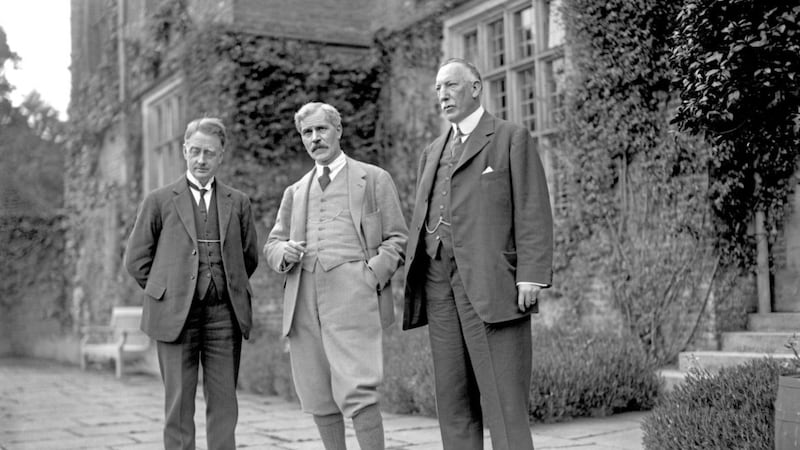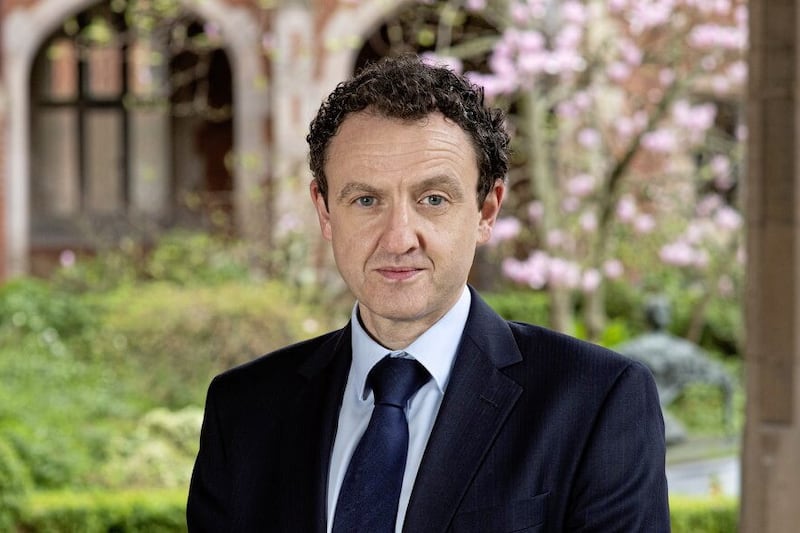The first time I became aware of Shaykh Dr Umar Al Qadri, he was being taught a jab lift in the centre of the pitch in Croke Park at the start of Eid celebrations in July 2020. He is the founder and Chair of the Irish Muslim Peace and Integration Council.
Last weekend, Dr Al Qadri was speaking at a public meeting in the Mansion House, Dublin, organised by Ireland’s Future, of which I’m a board member. This event was one of a series of all-island meetings on the theme of preparing for a New Ireland with the next taking place in the Armagh City Hotel on December 1.
Al Qadri said that imagining a New Ireland was the opportunity to create something better. It was an opportunity to reconsider the social contract and shape the country in the way we want, rather than the one we have inherited through the trials and tribulations of history.
Part of that imagining of a New Ireland has to include acknowledging and accepting different identities and acknowledging the fact that, despite having different identities we have one commonality of citizenship.
The discussion around identity has, for the most part, focused on a binary two traditions narrative, but that is something that we really need to expand upon.
Another of Saturday’s panellists, Neale Richmond TD, has spoken in the past of his Ulster Scots family background and family ties to County Down.
His party colleague, Councillor Lorraine Hall, spoke very eloquently on the issue of identity and Irishness at the Fine Gael ard fheis in June of this year. She sits on Dún Laoghaire-Rathdown Council but is originally from County Cavan where she grew up in a Protestant family of Ulster Scots heritage.
Her religion, family background, the schools she attended and sports she played do not mean that she is not also “proudly Irish.”
She said: “It is those people who make you feel like you are lesser Irish or those people who behave like there is a hierarchy of Irishness, they are the people who do not live up to our ideals as a Republic.”
That hierarchy of Irishness Lorraine Hall describes exists in many forms. How many of us meet the standard of “True Gael” of Joe Brolly proportions, for example?
There is a job of work to be done in respect of the sectarian attitude that many in the 26 counties hold towards Irish citizens in the six counties. Many view us, and treat us, as less Irish. There is a lazy presumption that anyone from the north who says they are a Republican is a Sinn Féin member or supporter and they are then viewed through a party political lens and dismissed as a result.
It’s not surprising that people from an Ulster British identity and tradition sometimes look at how those of an Irish republican or nationalist identity are treated at times in the south and decide that they could never be welcomed in such a society.
If we truly want to integrate everyone who calls this island home into a new Ireland, then we need to expand the definition of Irishness to ensure that it embraces the cultural and traditional expressions of everyone. No one should be forced to assimilate into a culture or country that they don’t feel part of.
We know from the most recent census in the 26 counties that one in six people living in the south of Ireland were not born on the island of Ireland. Even if the 2021 census of the north shows that figure were one in ten, there will be over a million people on this island who have chosen Ireland as their home. Those individuals will have a significant impact on the outcome of any future border poll, but more importantly on shaping what it really means to be Irish. The culture, heritage and tradition they bring enrich us all.
The framework for any anticipated constitutional change set out in the Good Friday Agreement “Affirm(s) that whatever choice is freely exercised by a majority of the people of Northern Ireland, the power of the sovereign government with jurisdiction there shall be exercised with rigorous impartiality on behalf of all the people in the diversity of their identities and traditions and shall be founded on the principles of full respect for, and equality of, civil, political, social and cultural rights, of freedom from discrimination for all citizens, and of parity of esteem and of just and equal treatment for the identity, ethos, and aspirations of both communities.”
Worthy words about respect for every tradition mean nothing without a robust framework of legal guarantees that protect identity and citizenship. A Bill of Rights needs to be central to the protections put in place in a new Ireland. That’s how you do parity of esteem properly.








